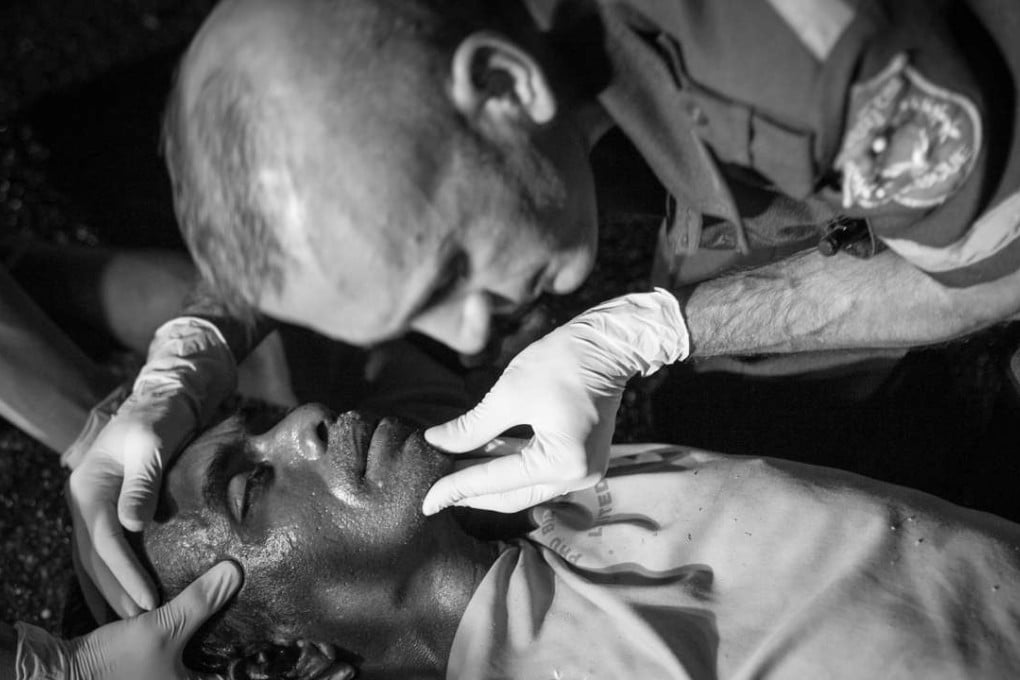On the streets of Vientiane with the teenage first responders saving lives
The streets of Laos’ capital city are among the most dangerous in Asia. A volunteer ambulance service founded by a Frenchman and manned largely by students is saving countless lives

The man is unconscious in the whooping ambulance as it races towards the hospital. A rectangle of surgical gauze now covers the gash in his cheek as we nag and bully our way through the Saturday evening traffic. Gobs of dark blood ooze from his right ear, suggesting cranial trauma, possibly a fractured skull. A boyish paramedic presses at the man’s abdomen, searching for signs of internal bleeding.
A second youngster has clipped a pulse oximeter to the man’s finger, the cheap-looking plastic device signalling that the oxygenated haemoglobin level in his blood is falling, and Sébastien Perret clambers from the front to administer emergency oxygen.
Just minutes earlier, the unconscious passenger had crashed his motorcycle into a parked people carrier in the Laotian capital of Vientiane. A quick-thinking bystander phoned Vientiane Rescue, and Frenchman Perret and his youthful first-responder team sprang into action. The motorcyclist, perhaps in his early 30s, at least today has a chance of survival. If the crash had taken place a few years ago, he would probably still be crumpled in the gutter, dying slowly in the rain.
Laos is one of the poorest countries in Asia. Its capital city, however, is thriving, and Vientiane’s newfound prosperity has resulted in streets teeming with shiny sedans and muscular SUVs, even the occasional luxury Bentley, as well as tens, possibly hundreds, of thousands of motorbikes and scooters. The gore-spilling, bone-crunching downside to the city’s success is a perfect storm of drink driving, endemic speeding, aversion to crash helmets, poor vehicle and road maintenance, and virtually no traffic-safety education or enforcement of road-traffic law.

Making matters worse is the country’s tragically inadequate health-care system, with no public ambulance service affordable for most pockets. Fighting back against the carnage, the 200 or so unpaid volunteers of Vientiane Rescue are praised as the city’s miracle-working “saviours of the streets”.
A few years ago, the independent emergency service – which is free of charge and operates 24/7 – comprised just a handful of dedicated individuals who slept by roadsides, praying that, when emergency calls came, they would have enough cash to put petrol into their sorry excuse for an ambulance. Today, on a budget of just US$6,000 a month, Vientiane Rescue operates eight ambulances, a fire truck, a scuba-rescue team and hydraulic “jaws of life” equipment for cutting trapped passengers from mangled vehicles.